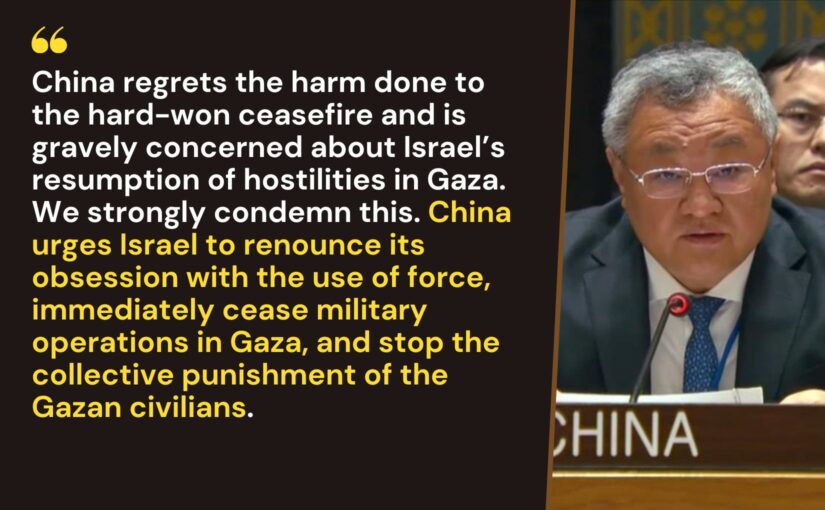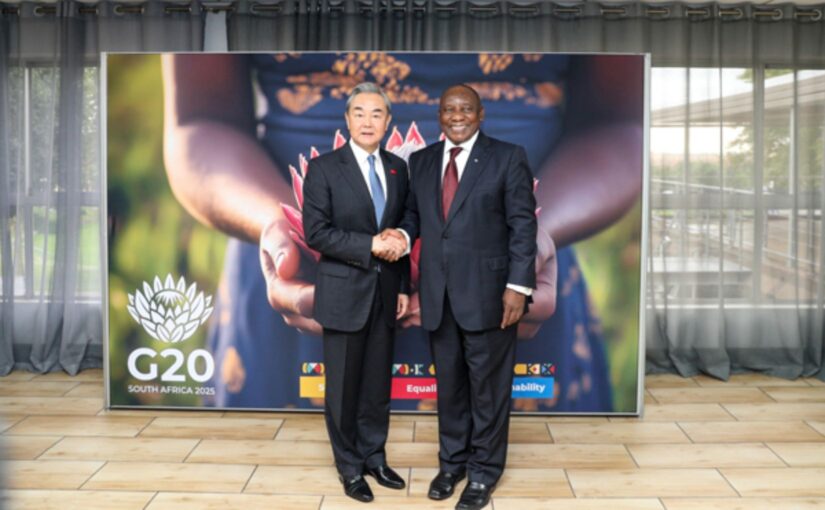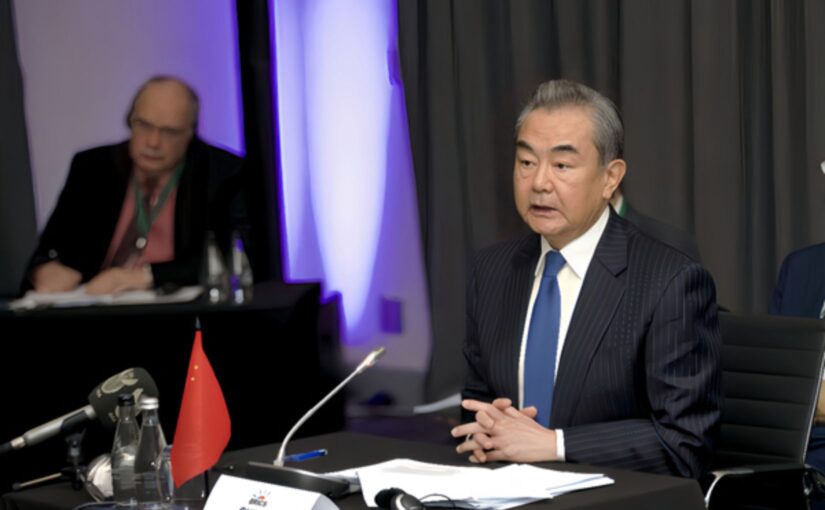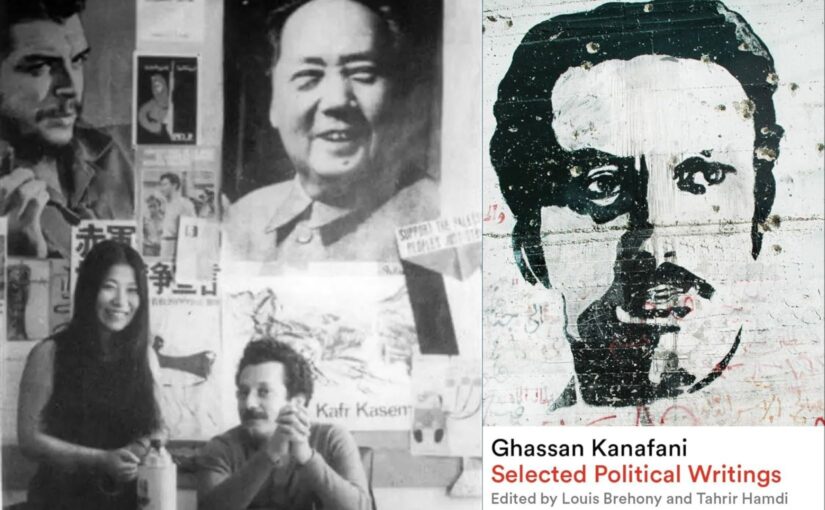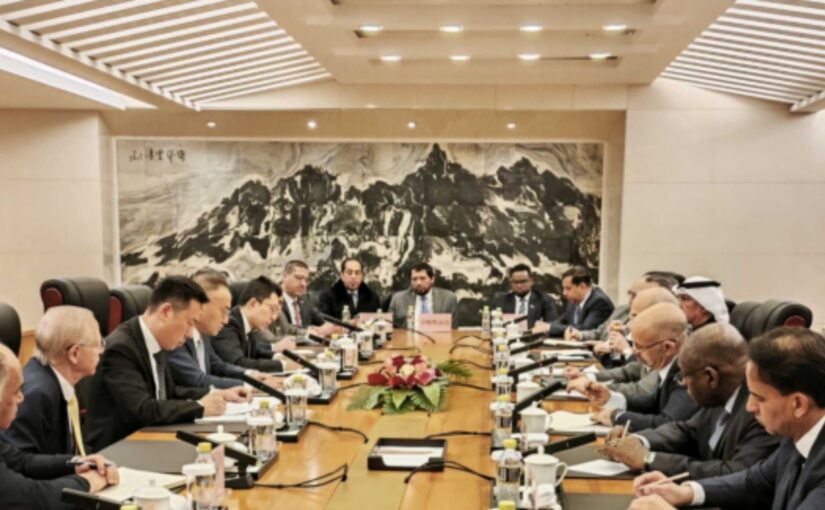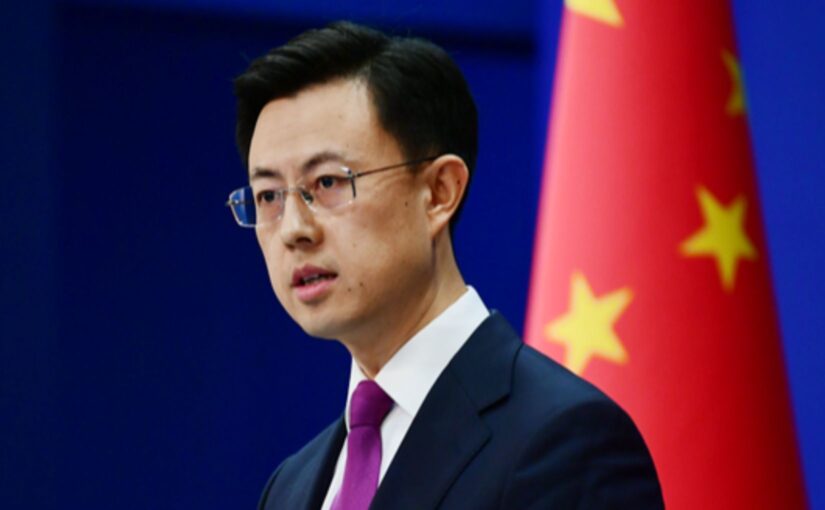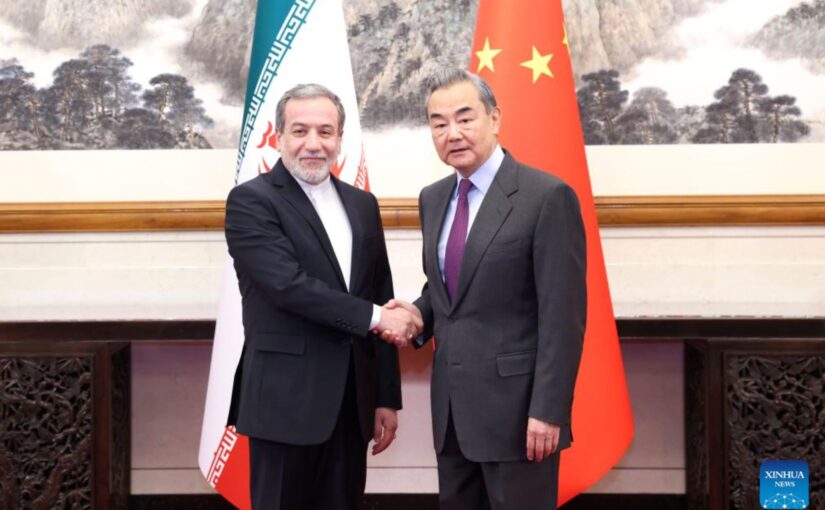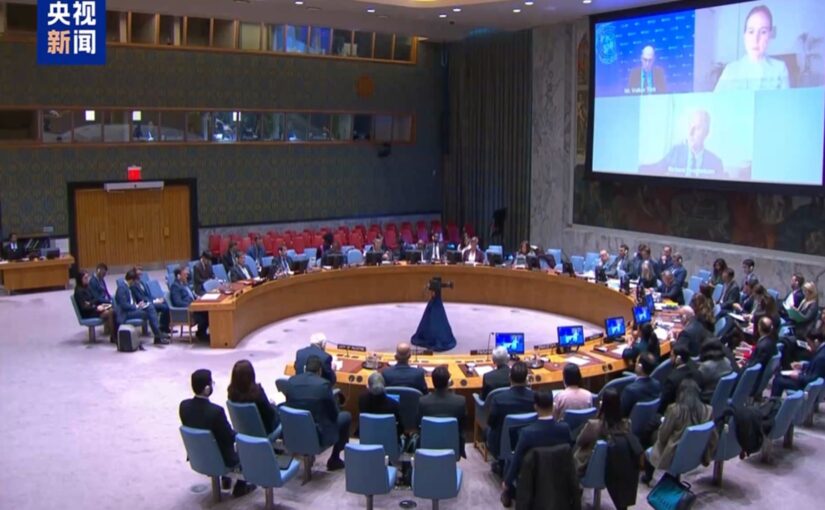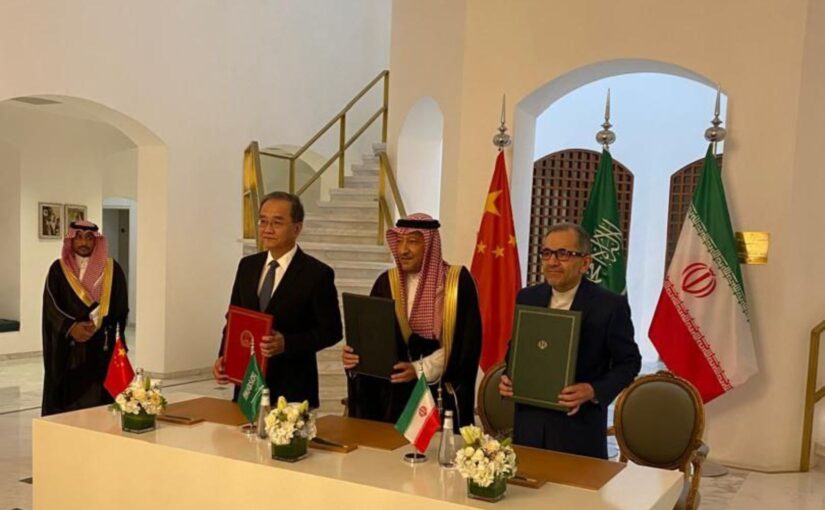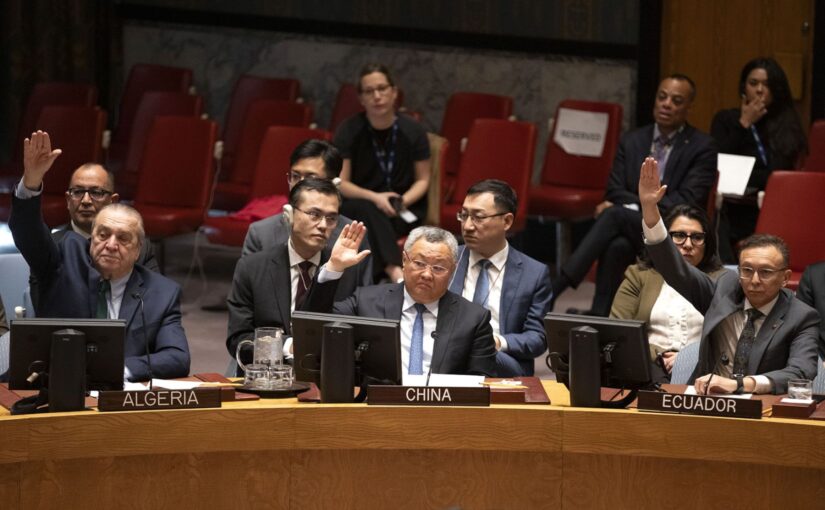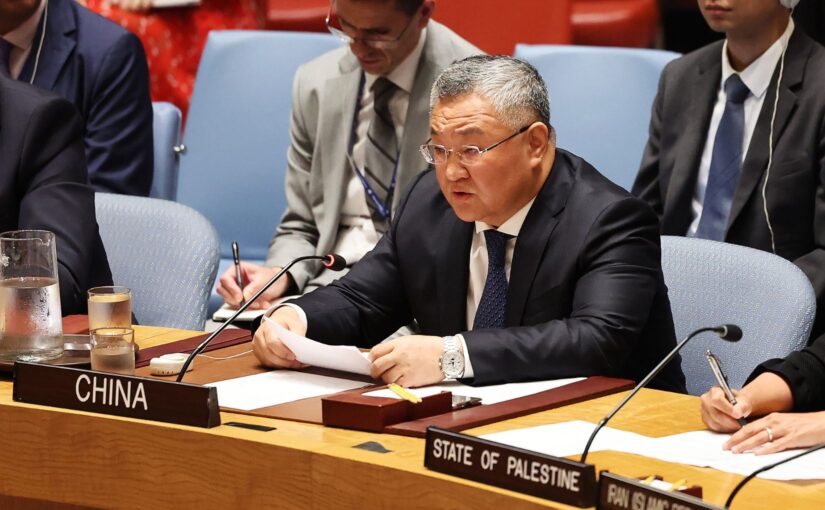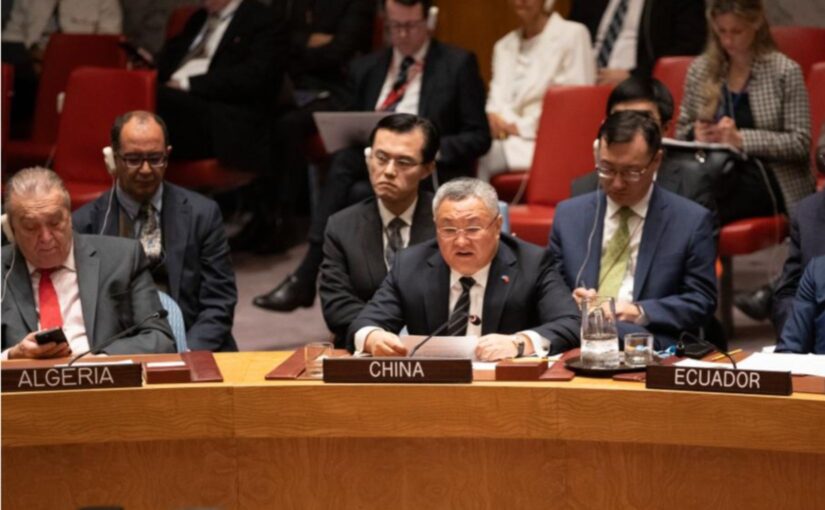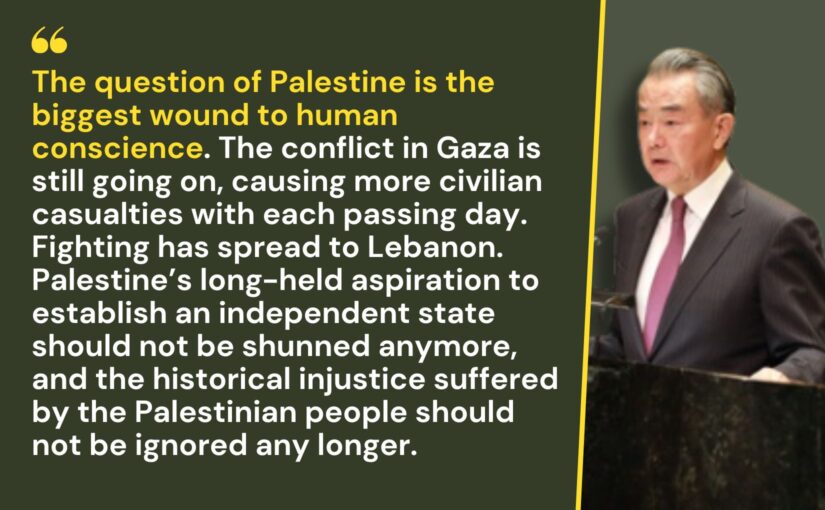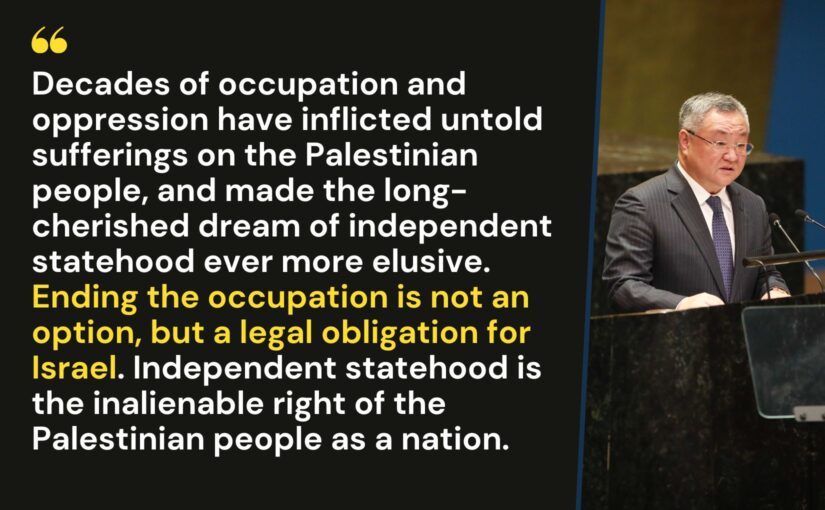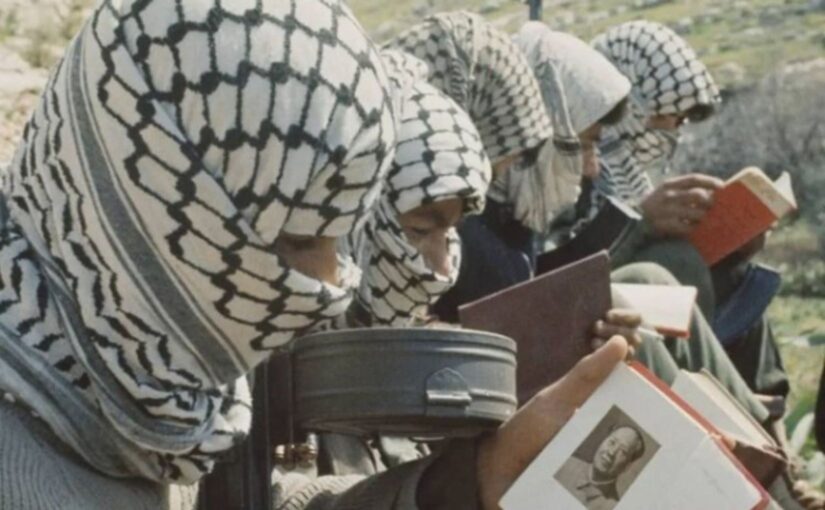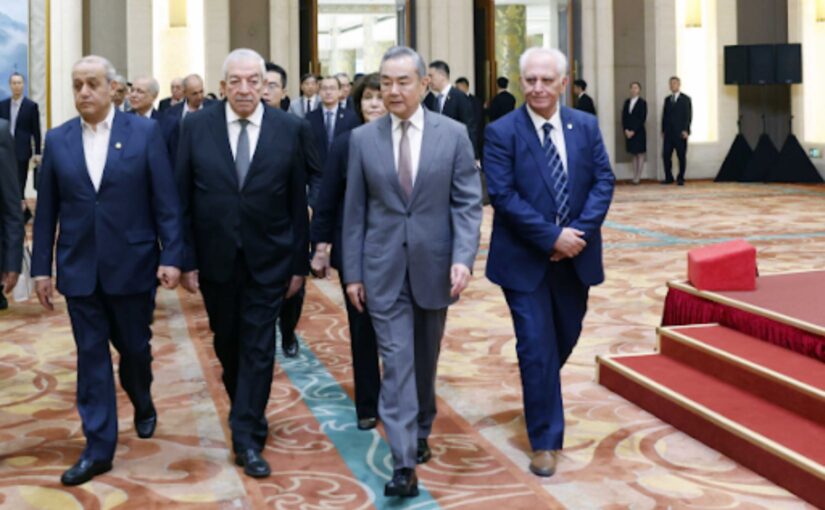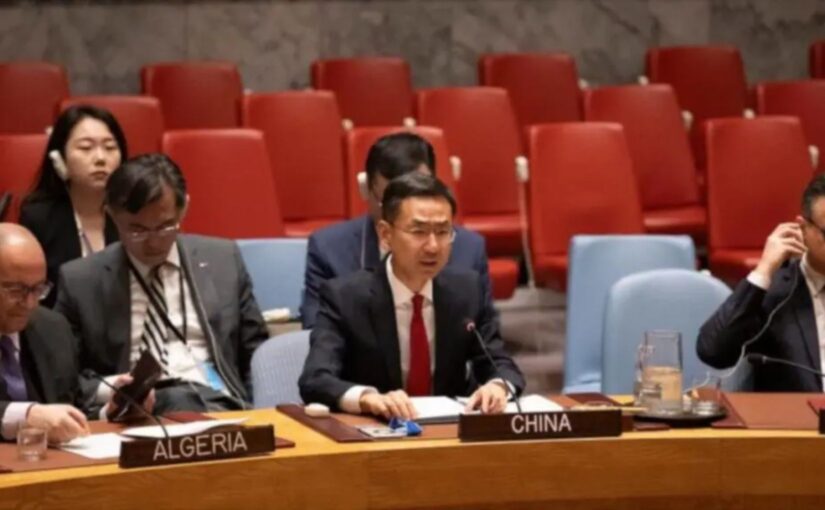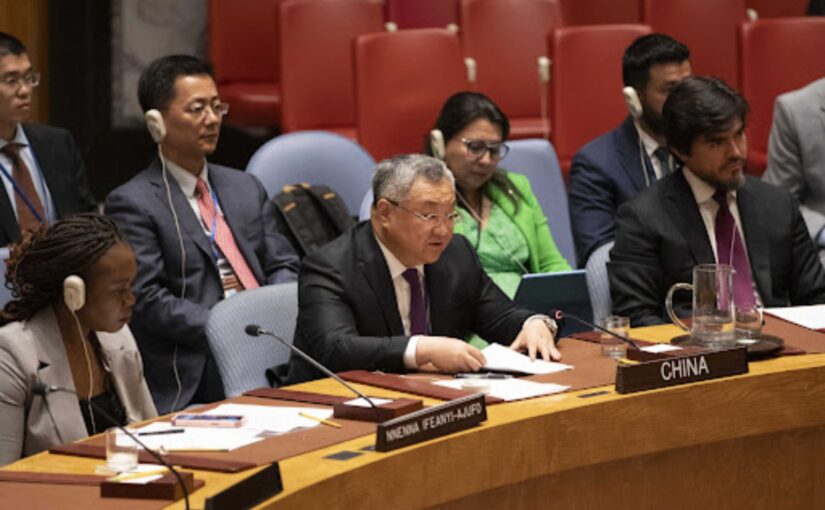Speaking at a briefing meeting of the United Nations Security Council (UNSC), called by non-permanent members Algeria and Somalia, China has strongly condemned Israel for its breach of the ceasefire and its new crimes committed against the civilian population of Gaza, which have seen hundreds killed, a huge number of them children, in a single day.
At the March 18 meeting, Ambassador Fu Cong said: “With the implementation of the ceasefire on January 19, people in Gaza had a long-awaited respite, and the humanitarian disaster was relieved to some extent… In spite of the strong calls from the international community to extend the Gaza ceasefire and the strong desire of the Gaza population for the resumption of peace and tranquility, the situation has moved in the opposite direction. On March 2, Israel announced the decision to halt the entry of humanitarian aid to Gaza. On March 9, it cut off the supply of power to Gaza. Just yesterday, Israel launched large-scale airstrikes against Gaza, causing hundreds of civilian casualties. China regrets the harm done to the hard-won ceasefire and is gravely concerned about Israel’s resumption of hostilities in Gaza. We strongly condemn this.”
China, he continued, urged Israel, “to renounce its obsession with the use of force, immediately cease military operations in Gaza, and stop the collective punishment of the Gazan civilians,” adding:
“We strongly oppose the weaponisation and politicisation of humanitarian aid. As of today, for 17 consecutive days, no humanitarian supplies were allowed into Gaza, and the loss of power disabled a desalinisation plant, worsening the water shortage crisis. The use of humanitarian aid as a bargaining chip is in violation of international law, especially international humanitarian law. China condemns such practice.”
China supports, “the Gaza recovery and reconstruction plan jointly initiated by Egypt and other Arab states and supports an early launch of reconstruction underpinned by the principle of Palestinians governing Palestine, whereby the Palestinian people can rebuild their homes in their own territory.”
The following is the full text of Ambassador Fu Cong’s remarks. It was originally published on the website of China’s Permanent Mission to the United Nations.
President,
I thank Algeria and Somalia for initiating today’s meeting, and thank Under-Secretary-General Tom Fletcher for the briefing.
With the implementation of the ceasefire on January 19, people in Gaza had a long-awaited respite, and the humanitarian disaster was relieved to some extent. However, as the first phase of the ceasefire expired on March 1, the ceasefire agreement failed to enter the second phase. In spite of the strong calls from the international community to extend the Gaza ceasefire and the strong desire of the Gaza population for the resumption of peace and tranquility, the situation has moved in the opposite direction. On March 2, Israel announced the decision to halt the entry of humanitarian aid to Gaza. On March 9, it cut off the supply of power to Gaza. Just yesterday, Israel launched large-scale airstrikes against Gaza, causing hundreds of civilian casualties. China regrets the harm done to the hard-won ceasefire, and is gravely concerned about Israel’s resumption of hostilities in Gaza. We strongly condemn this.
We strongly urge the abandonment of the logic of supremacy of force. Military means is not the way to solve the Palestinian-Israeli issue. The stark contrast between 15 months of bloody conflict and 42 days of ceasefire clear shows that the indiscriminate use of force is not the right way to bring back hostages and may even put them at greater risks. China urges Israel to renounce its obsession with the use of force, immediately cease military operations in Gaza, and stop the collective punishment of the Gazan civilians.
We strongly demand a permanent ceasefire in Gaza. Since the ceasefire agreement was reached, it should be fully and seriously implemented in good faith, and no attempt should be made to alter or undermine it midway. China calls on the parties to implement the ceasefire agreement fully and continuously, and expects the ceasefire guarantors to adopt a fair and responsible approach to facilitate the continuous implementation of the three-phase agreement and ensure the realization of a permanent ceasefire in Gaza.
We strongly oppose the weaponization and politicization of humanitarian aid. As of today, for 17 consecutive days, no humanitarian supplies were allowed into Gaza, and the loss of power disabled a desalinization plant, worsening the water shortage crisis. The use of humanitarian aid as a bargaining chip is in violation of international law, especially international humanitarian law. China condemns such practice. We urge Israel to fulfill its obligations as the occupying power under international humanitarian law and immediately restore full humanitarian access to Gaza.
We strongly call for the revitalization of the political prospects of the two-State solution. The implementation of the two-State solution is the only viable way to resolve the question of Palestine. Gaza and the West Bank, including East Jerusalem, are all inseparable parts of the Palestinian state. We support the Gaza recovery and reconstruction plan jointly initiated by Egypt and other Arab states, and support an early launch of reconstruction underpinned by the principle of Palestinians governing Palestine, whereby the Palestinian people can rebuild their homes in their own territory. The international community should step up its efforts to advance the political process of the two-State solution and provide necessary support to this end.
President,
For some time now, we have witnessed a dangerous sign in the Middle East. As the international rule of law and international order are violated and undermined, the law of the jungle seems to reign. This is worrisome and concerning. The Security Council, as the primary body for maintaining international peace and security, should put a prompt end to such chaos. We support further actions by the Council to bring about a permanent ceasefire in Gaza, restore peace in the Middle East, and achieve a comprehensive, just, and lasting solution to the Palestinian question.
Thank you, President.
